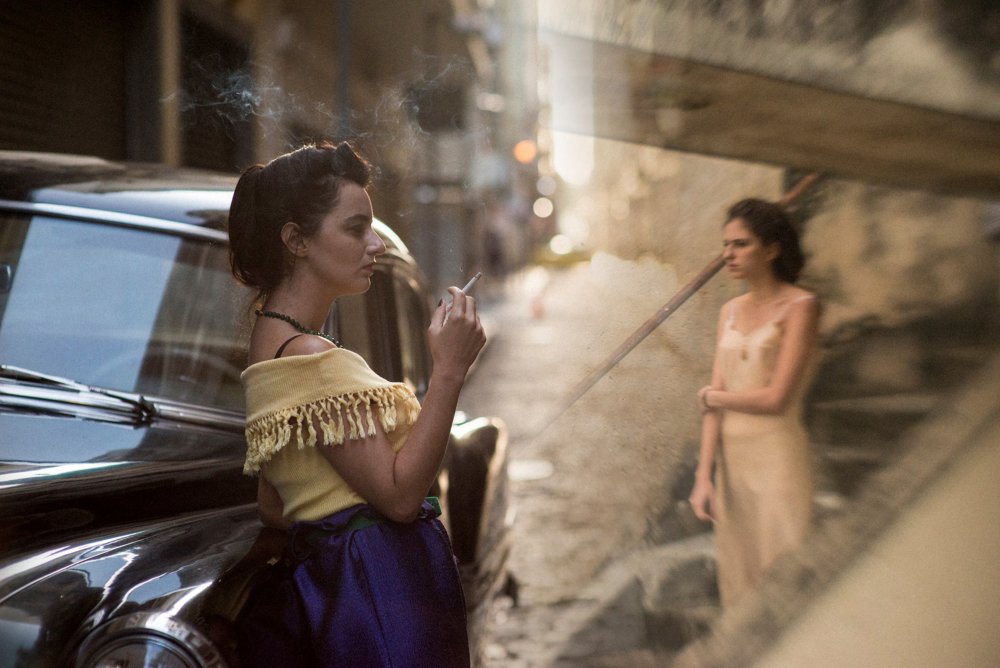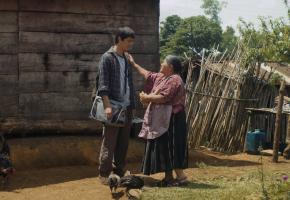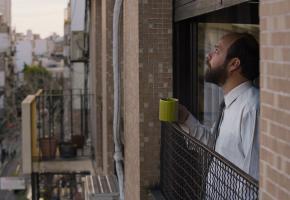“The invisible life of Euridice Gusmão” relates how two sisters are forcibly separated due to a series of lies and betrayals, perpetrated by the men in their lives. This sees them both living agonizingly out of contact with each other, thinking that the other is happily leading a successful life on a different continent. In reality, they are unknowingly within only a few miles of each other, so their letters to each other never arrive. They each have a dream: Eurídice of becoming a pianist and Guida of finding true love. They are torn apart, but never give up hope that they will somehow meet again.
Aïnouz is sensitive to the situation of women in Brazil, politically and domestically. So, in some ways, this film has, inevitably, become a political project. “Every 11 minutes, there is a crime committed against women in Brazil and it’s rising because of what we believed in the last years…" he says, making reference to the rhetoric of President Jair Bolsonaro.
“They have a very strong bond that’s beyond a blood bond. There is the affection and the closeness that was there but it wasn’t easy to construct this in a film, when you think that you only have 2 hours and 15 minutes and you only see them together for [the first] 15 minutes," Aïnouz responds.
"I felt it was very important to achieve [that relationship], otherwise we wouldn’t have had a story. The first scenes in the forest, when they are calling each other, and they can hear but they cannot see… In that world, there is only the two of them, as if that were possible."
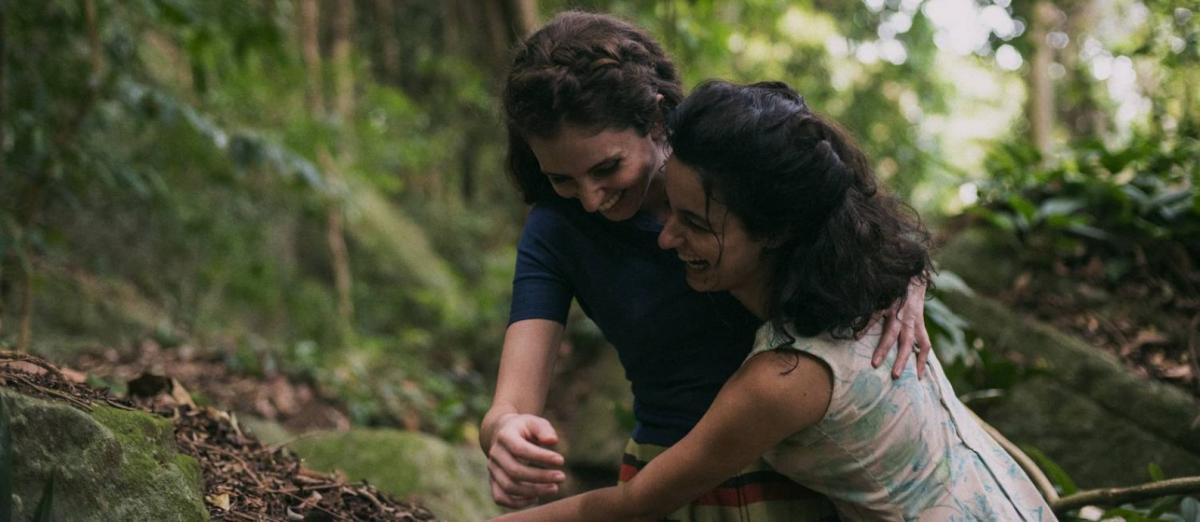
He continues...
"It’s interesting because [initially] that scene was not like that. There were scenes of them as children which I shot… but when I was shooting, I asked the production to bring me the actresses with wardrobe and I took the same shots with the actresses themselves… because intuitively, I could see that it didn’t work with the children. Now, I think that it was the right decision. The bodies of the actresses are the same, so you don’t disconnect, because with the operation of changing actors due to [the passing of] time is very tricky! It already happens at the end of the film, so I felt that was enough. My bet was that those scenes would convey how close they were… the fact that they were lost in a jungle, [which is] about a place of wilderness, but also a place of isolation. It might be idyllic but it’s also dangerous. It’s an important part of the city where they were born & raised, which is Rio, and there the presence of the jungle is very strong.”
A man of many talents, Karim Aïnouz was born in Fortaleza in the North of Brazil in 1966. He initially studied Architecture before deciding to study film at New York University. He turned out to be an award-winning director, screenwriter and visual artist. He enjoyed instant success, when he emerged winning an award for his screenplay on Walter Salles’ highly successful film, ‘Behind the Sun’ (2001) adapted from the book by Albanian writer Ismail Kadare, on the culture of honour in Albania. Aïnouz set the story in the north-east of Brazil, in Bom Sossego, where these same rigid traditions tear two families apart.
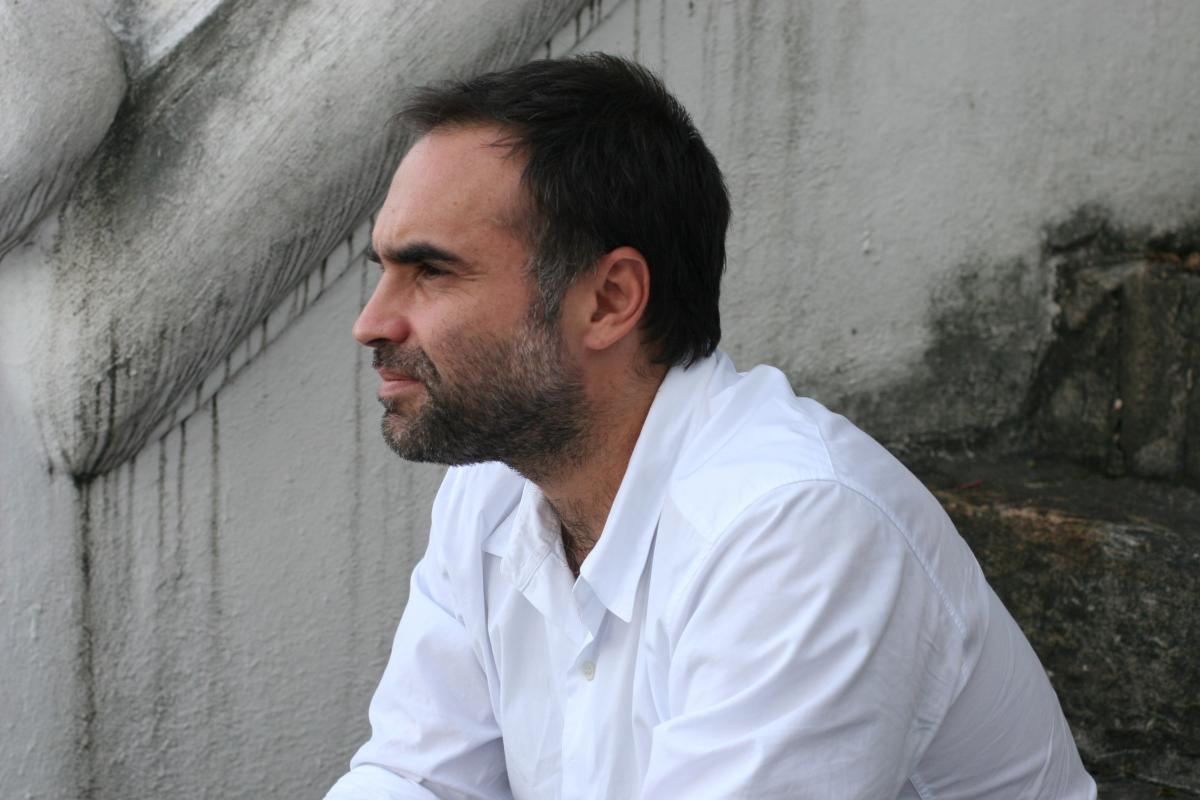 Karim Aïnouz
Karim Aïnouz
Shortly after, in 2002, he shot his first film: ‘Madame Satã’ which premièred at Cannes in ‘Un Certain Regard’, really putting him on the map. This film is based on a real person, João Francisco dos Santos (1900-1976), a fascinating black character who lived in Lapa in Rio de Janeiro. He moved seamlessly between being a street-fighter, a transvestite and a bandit. He was known as Madame Satã and the film is an interesting portrait not only of the character but of the times. (see review here)
In between filming, Aïnouz is constantly working, be it in the visual arts, as well as other activities. Many short films and installations have been exhibited at the São Paulo Biennale, the Whitney Museum of American Art Biennale, the Sharjah Biennal and the Video Brasil Festival (where he screened his video installation ‘Domingo’ about his meeting with the Danish artist Olafur Eliasson). When he can, he also lectures at the Centre for Audiovisual Narratives in Ceará, the Porto Iraçema das Artes in Fortaleza (Brazil) and is an active member of the Academy of Motion Pictures and Sciences.
Despite claiming that he has never really liked Rio de Janeiro, ‘The Invisible Life of Euridice Gusmão’ is the third film he has set there and now he is talking about filming another! As he exclaims: -
“I think there is something there that I need to work out!”
But if the story demands it, Aïnouz will follow. He has a particular attraction for tales that are immersive, intense and that have a strong personal connection: -
“The[original] novel by Martha Batalha] was given to me by my producer Rodrigo [Teixeira]. He’s an old friend and he knows me quite well. I was raised by my mother and my grandmother. I lost my grandmother in 2011 and then my mother in 2015. That’s when he gave me the book. I think he saw that this was something that would resonate with me and it did, because there were a lot of coincidences in the story and their characters and my personal life. So, for me, it was an opportunity to film a portrait of my mother’s generation, without making a straight autobiography or documentary.
When I read this book, I felt a synchronicity… with the fact that she was gone… I felt that she was a woman who’d had a very hard life, but who had owned that life, she made it … so there was a need for me, now she was gone, to make… almost a speech to the people that were there, you know… I wanted to tell her friends (who didn’t know her that well), what her life was really like. I wanted to talk to the people that came to the funeral ceremony. My story is different from the film but there was something that… [ resonanted]. When you make a film, it needs to be, not only super-relevant to you, but also super-relevant to the world. There were so many resonances, not only to my personal life, but to the condition of women at that time. I thought: it’s a tribute to my mother and to all the women in my family. Then the film turned out to have a political relevance that became even more significant, as things changed in Brazil during the last few years. So, the political voltage of the film has really been in synchronicity with what was [really] happening.”
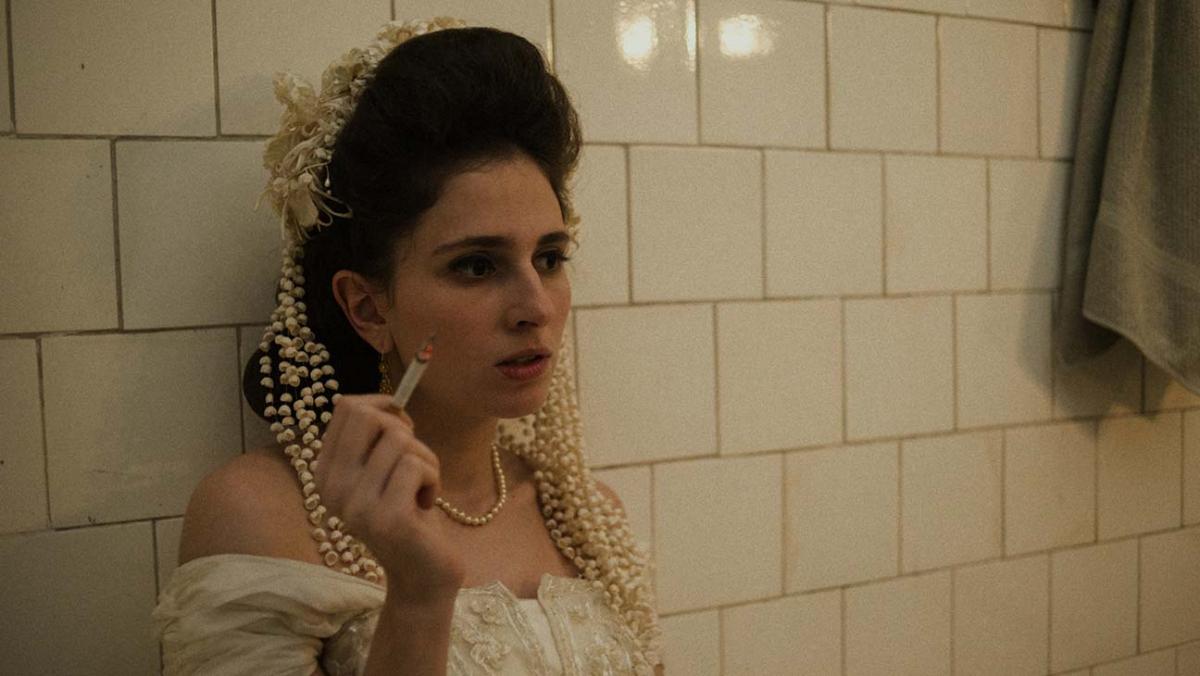 Carol Duarte as Eurídice Gusmão
Carol Duarte as Eurídice Gusmão
There are views of Rio de Janeiro that are atmospheric and significant. Behind the two sisters, we can see the iconic mountain of the Dois Irmãos (the Two Brothers) which symbolizes a sibling relationship in rock. Yet, this film does not dwell on the stunning Rio landscapes, it is an intimate film of interiors and shadows, that explores what goes on, where nothing can normally be seen: -
“It’s a chamber piece instead of an orchestra. It was important for me to film a portrait of ‘private’ lives. There are so many feminist sagas. But I looked at them and thought: What’s happening behind the doors? What’s happening behind the curtains? So, we did a lot of research about the history of private lives in Brazil for the script, in particular from the women’s standpoint. If you look at the film, it’s a family saga, the beats are: the marriage that didn’t work, but it was still a marriage, the other sister getting pregnant and having a child and trying to make a living… These are the beats of a family album and we thought it was very important to do that. I also wanted to use the mirrors, because… well, you can only believe melodrama to a certain extent. It’s artificial. If you don’t have irony, it becomes a soap opera. That is why soap operas are so problematic, because the camera is here in front of you and it believes in what you are saying! I learned a lot about that watching Fassbinder films, when there is something between you and the camera… hence the mirror! … it’s an ‘artificial’ reality.”
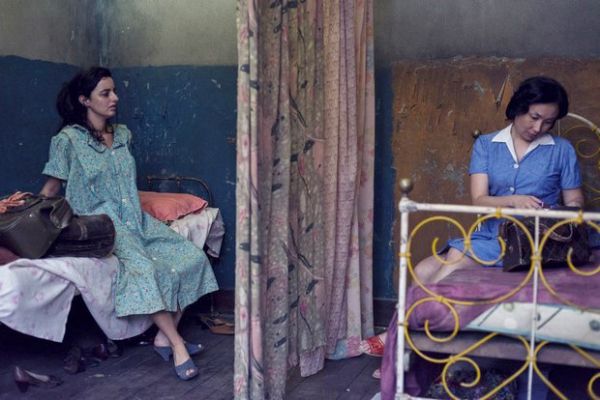 Julia Stockler as Gilda
Julia Stockler as Gilda
However, Aïnouz has no problems with melodrama and feels that it has very vital role to play in certain stories:
“It might be very seductive to have a crane…swooping around the city, but then you get lost and you don’t focus on what really matters. In this film, what matters is how these women resisted. It’s also about how toxic these men are. It was also very important for me to have the men off-screen or at the border of the screen. I didn’t want them to be… at the centre of ‘gravity’ of the scenes. Melodrama… is such a great genre! First of all, it’ talks about people that have been suffocated. I think that the mirrors and the shooting through doors, you know, and the camera not being [obvious] creates a sensation that there is something between you and them. That was important. Using interiors obviously had to do with it, as it changes the perspective completely. You’re looking at someone, but you’re not in the room with that someone and that generates a very different sensation …” 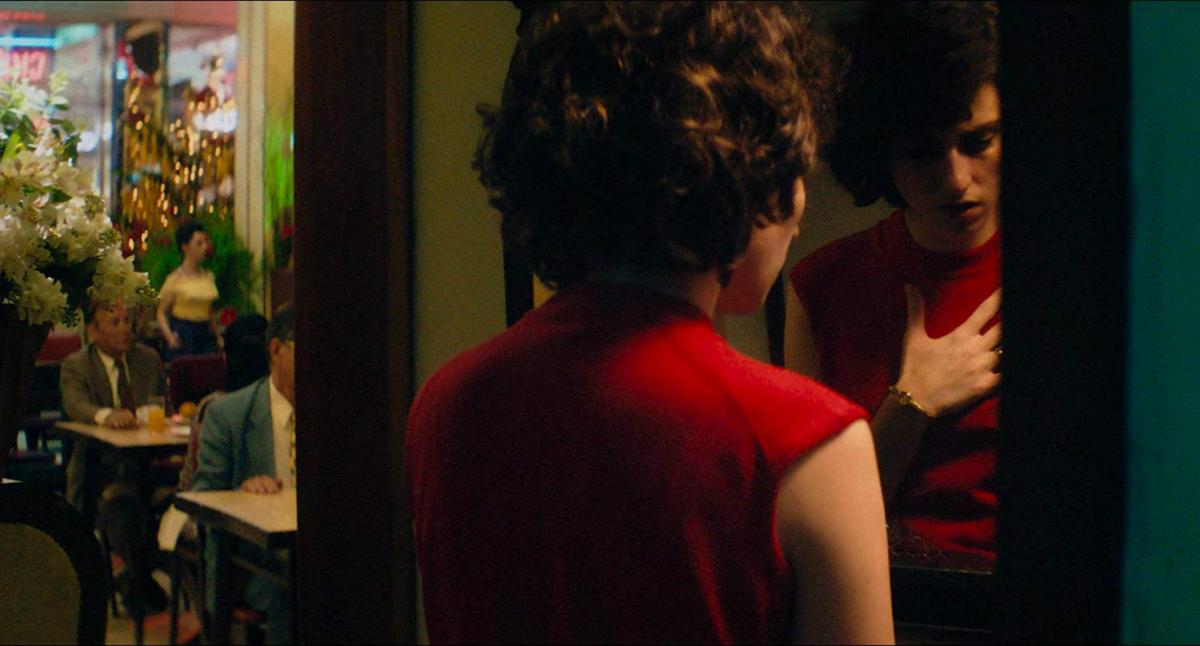
Eurídice played by Carol Duarte
Despite the melodrama, no character ever falls into self- pity. As Aïnouz emphasizes, “…not one drop of a tear came out of a woman’s body… if you pay attention you will see that nobody ever cries… if they start to cry, they contain it.” Yet the film is not only about how harmful certain family structures can be, but also about solidarity, and that can be seen when one of the central characters, Filomena (the magnificent Bárbara Santos) appears in the film: -
“In the book, Filomena is an ex-prostitute. She’s very skinny, she doesn’t have teeth, she suffered from syphilis but she’s still alive. When I started to think about that character I said: I don’t want to see that, I’ve seen enough of that! I want to see a queen with self- sufficiency, a sense of humour, a certain grandeur… that the character in the book didn’t have. So, I asked myself: How can I cast it, who could be this person? I did a lot of auditions. Then I remembered Bárbara Santos, the actress who was at a friend’s house and they were reading a theatre play. This is years ago … but she stayed in my mind. I thought: This woman has a strength, an anger, that I really love as well. When I first started casting, it was not supposed to be her, we had another actress in mind. But when I remembered Bárbara and I said: (Clicks his fingers) That’s my Filomena! That’s the energy that I need... [a combination of] anger with generosity and wisdom, with a glamour that the character has. So, it changed a lot from the book, but I think she’s a really important character because she condenses the opposite…an oasis…… a family of love that she constructs…”
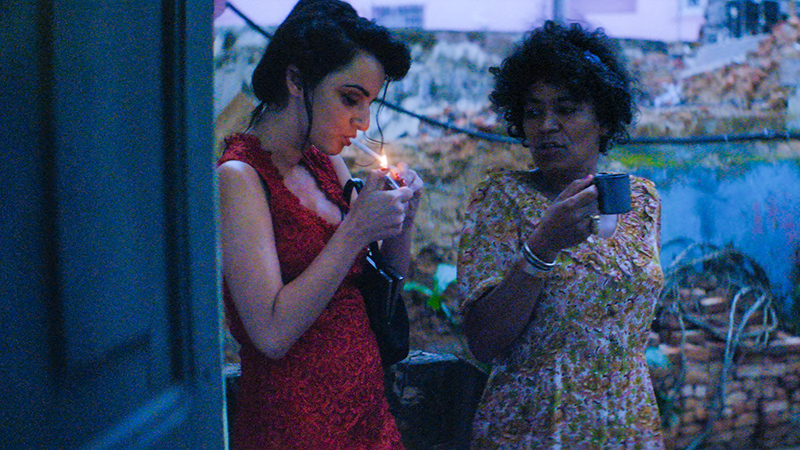 Julia Stockler and Bárbara Santos
Julia Stockler and Bárbara Santos
Aïnouz is certain that this character has existed for real, just as he imagined her… who would help women from the neighbourhood, caring for their children and creating a network of solidarity that saved many from despair and total poverty, developing a spontaneous matriarchal society in the communities within the favelas. Filomena and what she represented, therefore acted as a vital counterpoint to the more toxic elements in the saga. Interestingly Eurídice, who appeared to have it all, in the end, had far less. It was Guida who had achieved some riches, if of a very different kind. Few directors have expressed the female psyche with such sensitivity.
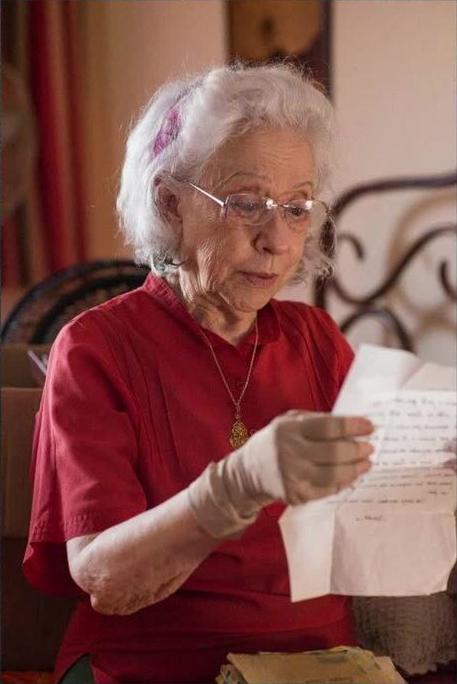 Fernanda Montenegro as the older Eurídice
Fernanda Montenegro as the older Eurídice
The older Euridice is played by the wonderful Fernanda Montenegro, who achieved fame and recognition in Walter Salles film “Central Station”: -
“When I thought of the film’s ending, which is so important, the choice of having Fernanda Montenegro was simple. She was the first person that came into my mind. She’s the synonym of dignity with resilience. About 20 years ago, she was in a movie in which she had a major role (Central Station) and I thought it would be a beautiful way of making a homage to that film, (which is also a melodrama)… I invited her, but I thought she would never do it because it’s a small part, but she really did it with a lot of love. I think it was also that she expressed the resilience of Euridice and of all women. For me, as a filmmaker and someone who loves film, she has, like some actresses, imprinted on their soul, even tattooed on their soul, all the other characters they have ever played!
In keeping with this theme, Aïnouz chose a largely female crew, which he felt was vital to the sensibilities of the subject matter. Notably, Hélène Louvart, the female Director of Photography.
Iracema Aïnouz, mother of Karim in " O Marinheiros das Montanhas" 2021
Accompanied by his Brazilian mother, Iracema, Aïnouz has just finished shooting “O Marinheiro das Montanhas” (2021). Aïnouz’s father comes from Algeria and the film is a travel diary to his father’s village, where there was a lot of resistance during the Algerian war of independence from France.
“The Invisible Life of Euridice Gusmão” 2019 will be playing in cinemas around the country, BFI Player and Curzon Home Cinema from October 15th 2021 See where its screening near you here
Director Karim Aïnouz
Screenplay Murilo Hauser/ Inés Bortagaray / Karim Aïnouz
Book Martha Batalha
Production Rodrigo Teixeira/ Michael Weber / Viola Fügen
DOP Hèléne Louvart
Editor Heike Parplies ( bfs)
Music Benedikt Schiefer
Sound Designer Waldor Xavier
Prod. Companies RT Features/ Pola Pandora/ Sony Pictures/ Canal Brasil and Naymar.
Cast: Fernanda Montenegro, Carol Duarte, Julia Stockler, Gregório Duvivier, Bárbara Santos.


